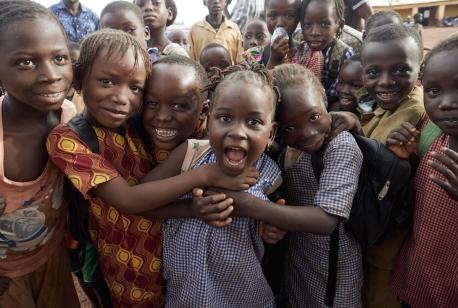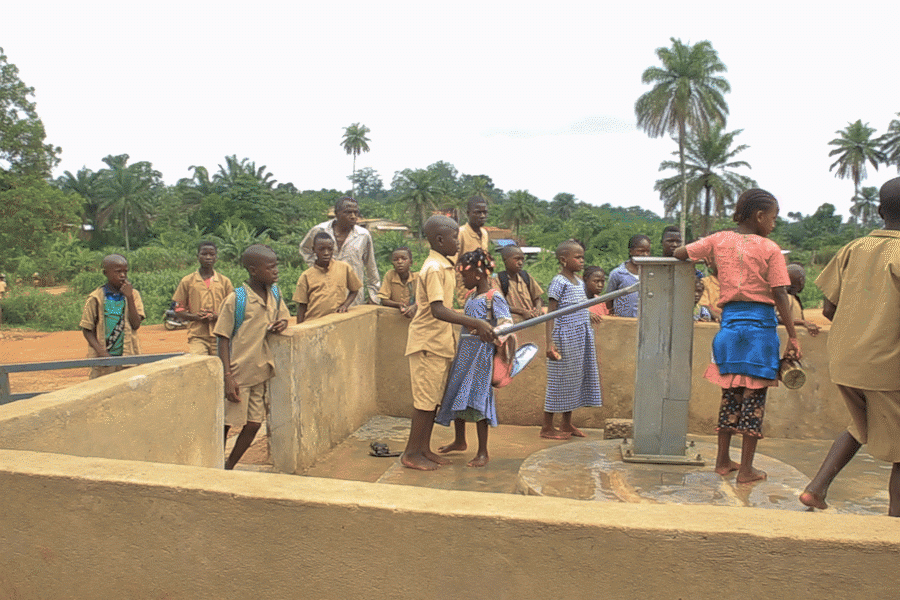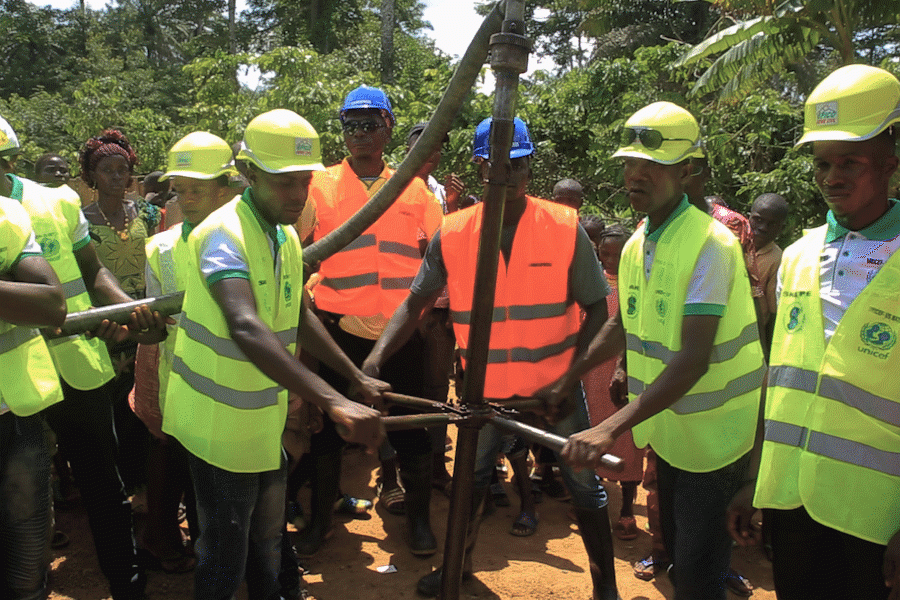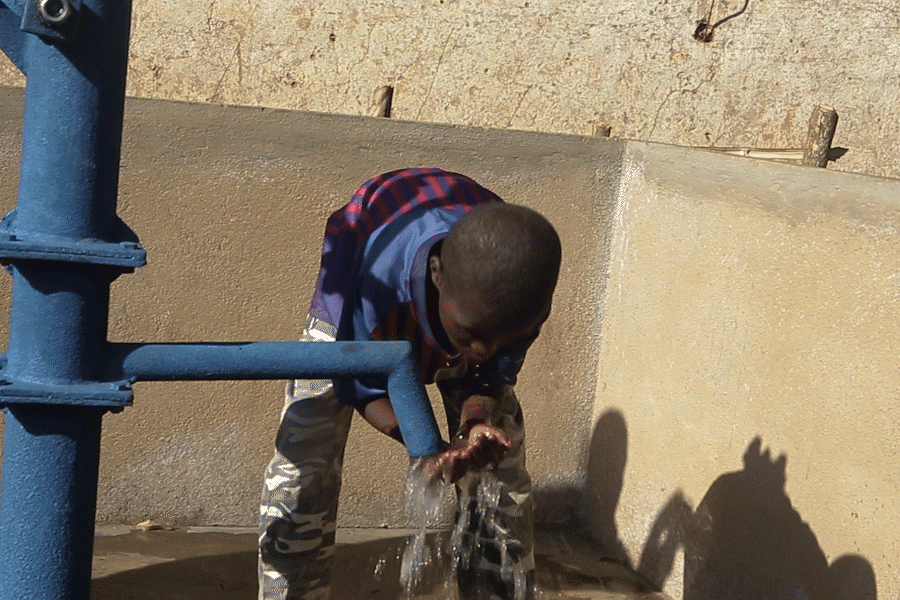
UNICEF's Water for Guinea Program Is Just Getting Started
New manually drilled wells are making all the difference for remote communities in Guinea. And yet a third of the population of this West African nation still lacks access to safe water, a basic human right. A look at the impact of UNICEF's Water for Guinea program — and plans to expand it, with the help of solar power.

Four million people in Guinea — about a third of the country’s population — do not have access to safe water at home or at school. Many children are forced to drink surface water, or river water — vastly increasing their risk of disease, and threatening their overall well being and future development.
Since 2014, UNICEF and partners have been working to improve access to safe water in rural areas of the country, where children and families are particularly vulnerable. Through UNICEF's Water for Guinea program, local project teams use an auger, or manual drilling device, to reach underground sources. So far, over 125,000 people have benefited.
A safe water program that creates local jobs and fosters community pride and ownership — ensuring sustainability
The approach avoids the logistical challenges of conventional drilling while getting the job done at a lower cost — no electricity or heavy machinery required. It allows UNICEF and partners to serve places that trucks can't get to.
What's more, members of the community are trained and hired to do the drilling and long-term monitoring and maintenance. As a result, the local economy gets a boost, and the community takes pride and ownership over the solution, ensuring its sustainability.

“With each water point project, our goal is not just to provide water. We also want to create infrastructure that will be effective and durable for the long term, and build a knowledge base around safe water usage that will allow Guineans to thrive,” explains Andy Astrachan, the founder of the AJA Charitable Foundation, UNICEF's lead program partner. (Andy is also a UNICEF USA Humanitarian Circle member.)
Water for Guinea 2.0: solar-powered water pumps
For the program's next phase, UNICEF and partners aim to drill 220 more wells serving another 210,000 people. Project teams will also be retrofitting existing wells with solar-powered pumping systems, allowing water to be pumped from the ground using energy from solar panels rather than by hand or by power generator.
These systems also allow water to be pumped from greater depths while generating power for nearby schools and health centers; water can be stored in a tower that feeds into a pipe system reaching multiple faucets, providing faster, more convenient access as well as a back-up supply in the event of a drought.

It costs just $13 to deliver safe water to a person for 10 years through this program. $5,000 pays for a manually drilled well and handpump to provide an entire village with sustainable access to safe water for generations.
Top photo: Children in Guinea are susceptible to disease because of poor access to safe drinking water. UNICEF is working with partners to change that. © UNICEF/UN0264194/Brembati
HOW TO HELP
There are many ways to make a difference
War, famine, poverty, natural disasters — threats to the world's children keep coming. But UNICEF won't stop working to keep children healthy and safe.
UNICEF works in over 190 countries and territories — more places than any other children's organization. UNICEF has the world's largest humanitarian warehouse and, when disaster strikes, can get supplies almost anywhere within 72 hours. Constantly innovating, always advocating for a better world for children, UNICEF works to ensure that every child can grow up healthy, educated, protected and respected.
Would you like to help give all children the opportunity to reach their full potential? There are many ways to get involved.





